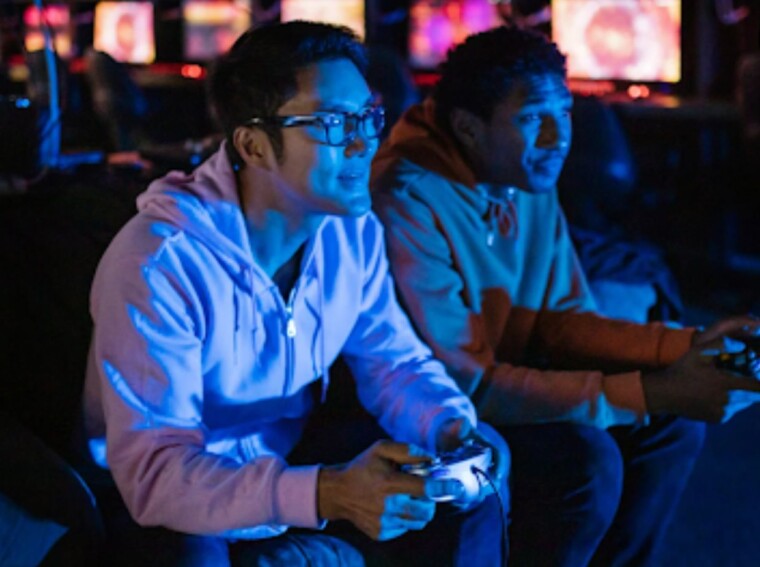Digital competition has exploded, whether for fun or quick payouts. In 2023, global gaming revenues topped $184 billion, while casinos and eSports also posted record highs. Yet beneath those numbers, the two sectors split in how they handle skill and progression.
Players everywhere want proof that their ability matters, but the systems behind rankings tell different stories. Sometimes outcomes hinge on pure randomness, other times on performance tracking or complex algorithms. In the end, these models shape what “skill” really means—and what players can expect when they spin the reels or load into a match.
How Skill Ranking Systems Shape Competitive Video Games
Competitive games lean on ranking systems to keep matches fair. Elo, first built for chess, now powers everything from League of Legends to CS:GO. It’s not just win or lose that matters—opponent rank and sometimes in-game performance all influence the outcome.
TrueSkill, Microsoft’s upgrade for Xbox Live, goes further. Instead of one number, it gives each player a skill estimate and a margin of error, adjusting rankings after every match. This margin keeps games balanced and leaderboards more reflective of actual skill, especially in team play. Research suggests it even makes matches feel more engaging. Still, no model is flawless, but frequent recalibration keeps competition meaningful.
The Mechanics Behind Leaderboards In Online Slots
In the realm of online slots, ranking systems serve a different function entirely. Traditional slots derive outcomes exclusively from Random Number Generators (RNGs), negating the influence of player skill. Players frequently encounter leaderboards or tournament rankings, especially during promotional events—a top spot may go to whoever accumulates the highest winnings or covers the most spins within the allotted time. However, these rankings reflect only who was most fortunate during the session, not who played with the greatest skill or strategy.

Rules for slots are pretty strict; regulators want an even playing field, so what happened before (and even most of what the player does) simply has no effect on the outcome. A few slots try to shake things up with rapid-fire bonus rounds or “tournament” features that reward players who cycle quickly, but none of this actually transforms the experience into something requiring skill over luck. Some titles are venturing into hybrid territory—mini-games that need a bit of timing or precision are appearing, muddying the water between luck and action. But honestly, nearly every traditional slot still boils down to pressing your luck and not much else by the time the leaderboard settles.
Competitive Ranking In Skill-Based Casino Games Versus eSports
When it comes to casino games that aren’t entirely built on luck, ranking works a little differently—think games like online poker or blackjack, or the rare “arcade” slot with a bit of a twist. These environments can feel just a bit like eSports, since results are influenced by decisions, not just chance. Poker tournaments, for example, depend on chips gathered through a long string of choices and bluffs, with rankings shifting as the action unfolds. According to Betboyz, formats using points, eliminations, and matchups by tier actually mirror some eSports systems pretty closely.
Unlike slot leaderboards that mostly celebrate a lucky streak, these skill-based leaderboards seem (at least on paper) to reward things like strategic risk-taking, reading opponents, and adapting as you play. Regulators, perhaps understandably, have grown more adamant about keeping luck-based and skill-based offerings separate, especially when it comes to the structures of tournaments and the prizes on offer.
Hybrid slot games, as mentioned, sometimes throw in quick reflex mini-challenges or puzzles—but let’s be honest, the rollout of full-scale Elo or TrueSkill systems in casino games is, if it’s happening at all, still a rarity. And it usually faces plenty of regulatory red tape before it even gets through the door.
Key Contrasts Between Ranking Systems Across Platforms
Game developers in the competitive scene tend to pour energy into making their ranking systems robust. Elo and TrueSkill, for example, have pretty much set the standard for how progress is tracked and how players are matched up—or so it seems. Switch over to slots and you’ll notice right away: leaderboards don’t really tell you much about skill, since there’s no way to outplay random chance.
Interesting, though—some casino operators running those skill-based games have clearly borrowed ranking ideas from eSports, adapting them for gambling tournaments. In this setting, rankings start reflecting tactical know-how and maybe even a touch of mastery, instead of just marking the person who spun reels the longest. Maybe in the coming years, especially as more hybrid titles pop up, the gaps will close a bit more. Still, there’s yet to be a traditional game genuinely running on skill-based ranking—and for now, that seems unlikely to change too rapidly.
Playing Responsibly In Chance And Skill-Driven Environments
So whether you’re chasing jackpots or climbing the competitive ladder in tournaments, it’s easy to get swept up in these systems. But here’s the thing: while the strategic side of skill-based ranking can be fun, luck will always cast its shadow, especially in pure chance games.
Setting reasonable limits, knowing when luck is driving the bus (and when you’re actually in control), and giving yourself permission to take a breather now and then? Probably wise moves. Both fans of slots and eSports players might do well to treat rankings as part of the experience—motivating, maybe, but definitely not a promise of steady wins or financial payoff.
